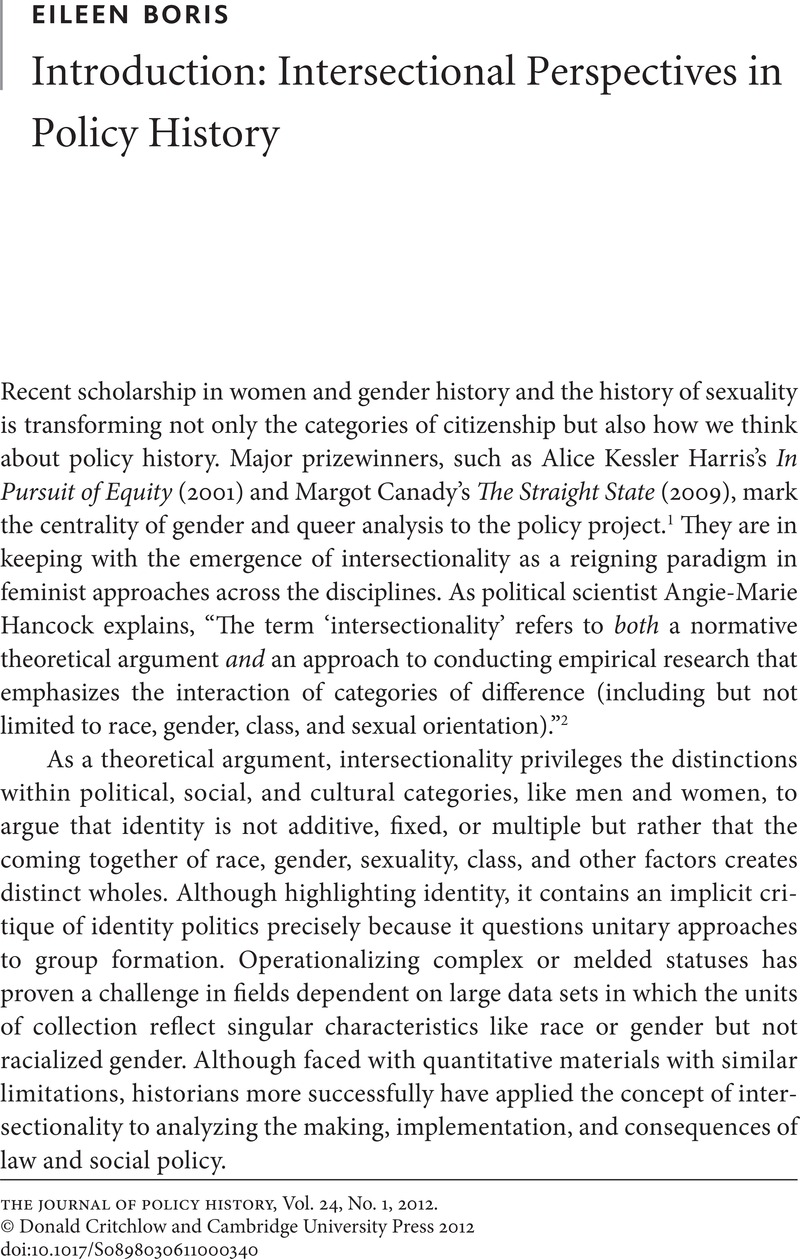No CrossRef data available.
Article contents
Introduction: Intersectional Perspectives in Policy History
Published online by Cambridge University Press: 01 February 2012
Abstract

- Type
- Articles
- Information
- Copyright
- Copyright © Donald Critchlow and Cambridge University Press 2012
References
NOTES
1. Kessler-Harris, Alice, In Pursuit of Equity: Women, Men, and the Quest for Economic Citizenship in Twentieth-Century America (New York, 2001)Google Scholar; Canady, Margot, The Straight State: Sexuality and Citizenship in Twentieth-Century America (Princeton, 2009).Google Scholar
2. Hancock, Angie-Marie, “When Multiplication Doesn’t Equal Quick Addition: Examining Intersectionality as a Research Paradigm,” Perspectives on Politics 5 (March 2007): 63–64.CrossRefGoogle Scholar
3. Boris, Eileen, “Politicizing Women’s History, Engendering Policy History,” Journal of Policy History 21 (2009): 432–33CrossRefGoogle Scholar; Boris, “On the Importance of Naming: Gender, Race, and the Writing of Policy History,” Journal of Policy History 17 (2005): 72–92.CrossRefGoogle Scholar
4. Auerbach, Sascha, ‘“A Right Sort of Man’: Gender, Class Identity, and Social Reform in Late Victorian Britain,” Journal of Policy History 22 (2010): 64–94CrossRefGoogle Scholar; Bell, Jonathan, “‘To Strive for Economic and Social Justice’: Welfare, Sexuality, and Liberal Politics in San Francisco in the 1960s,” Journal of Policy History 22 (2010): 193–225.CrossRefGoogle Scholar
5. For example, Zelizer, Julian and Shulman, Bruce, eds., Rightward Bound: Making America Conservative in the 1970s (Cambridge, 2008).Google Scholar
6. Palmer, Phyllis, “Outside the Law: Agricultural and Domestic Workers Under the Fair Labor Standards Act,” Journal of Policy History 7 (1995): 416–40.CrossRefGoogle Scholar


